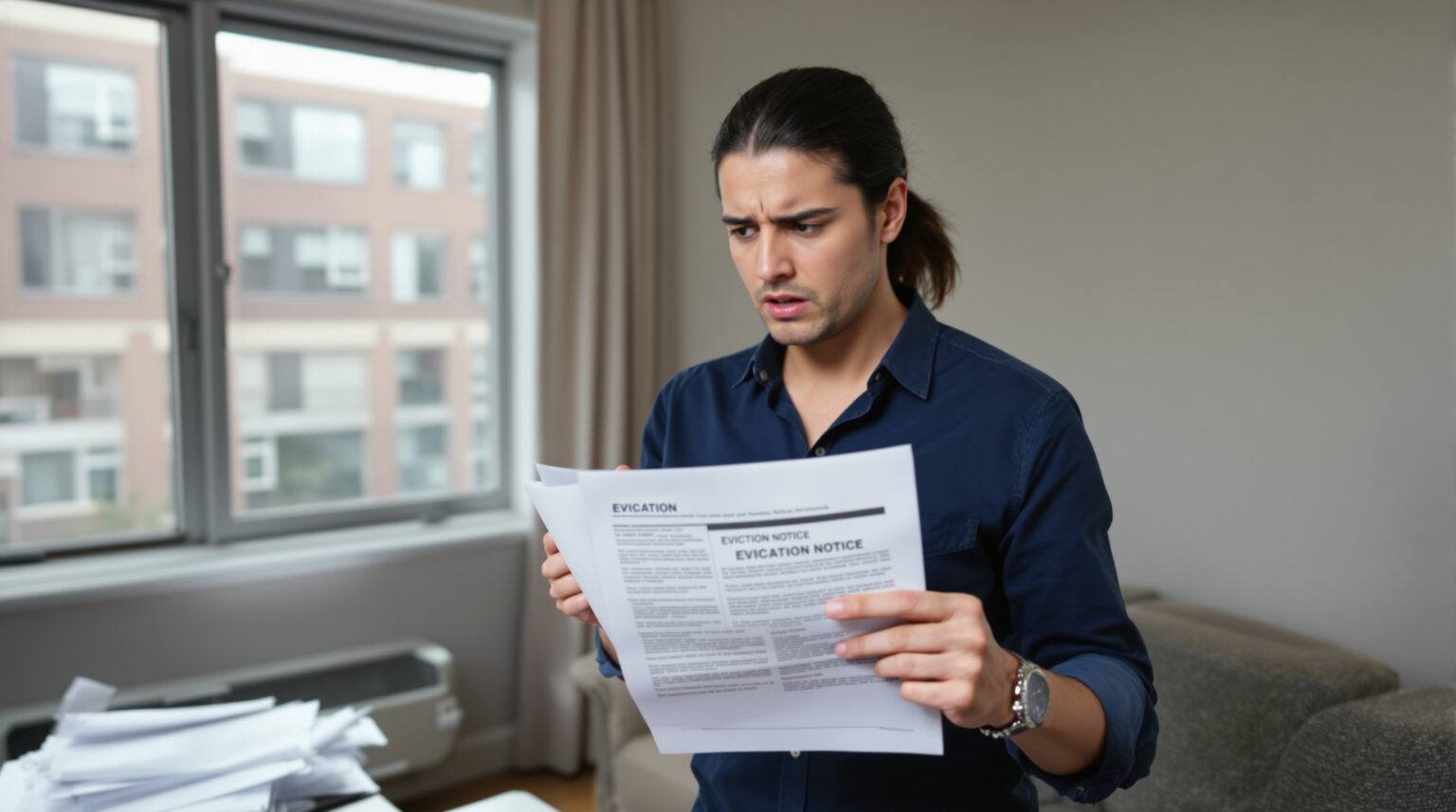Understanding Illegal Sublet Eviction Toronto: What Counts as an Illegal Sublet?
Navigating the world of illegal sublet eviction Toronto starts with understanding what truly constitutes an “illegal sublet” under the Residential Tenancies Act (RTA) and the updated expectations for 2025. Subletting itself is not unlawful in Ontario, but strict rules must be followed—tenants need to secure written permission from their landlord before subletting their space. If a subtenant moves in without this approval, it quickly turns into an illegal sublet situation and puts both the tenant and subtenant at significant risk of eviction.
The RTA makes it clear: tenants remain fully responsible for rent and property condition, even while subletted. Unauthorized subletting isn’t just a paperwork error—landlords have just 60 days from finding out to pursue an illegal sublet eviction in Toronto by making a formal application to the Landlord and Tenant Board (LTB).
If a tenant repeatedly rents to others—especially using short-term platforms, exceeding allowed rent, or involving real estate agents—this can cross into operating an illegal business. Such severe cases give landlords even more grounds for an expedited illegal sublet eviction Toronto process, especially under Section 61 of the RTA. To learn more about these scenarios and your landlord obligations in Ontario, review our local resource page.
Liability doesn’t end with the tenant. The landlord’s ability to approve or reasonably refuse a sublet applicant is a cornerstone of the rental relationship. Both parties must understand their obligations—tenants for written permission and landlords for reasonable consent or documented refusals. For more on the specifics of subletting and assignments, the Landlord Self-Help Centre’s fact sheet is an excellent resource.
- Real-life Example #1: A Toronto tenant sublets their condo without landlord approval while vacationing overseas. The landlord discovers the unauthorized subtenant on social media, applies to the LTB within 60 days, and both are subject to an illegal sublet eviction Toronto order.
- Real-life Example #2: A tenant uses their apartment for multiple short-term rentals exceeding market rent. The landlord provides evidence of repeat offenses and demonstrates this is an illegal business, justifying an immediate eviction under the RTA.
If you’re unsure whether your situation falls under an illegal sublet, it’s crucial to review the Rental Act Ontario overview and seek advice before problems escalate. Recognizing what counts as an illegal sublet is the foundation of safeguarding your Toronto tenancy or investment property.
Triggering an Illegal Sublet Eviction in Toronto: What Triggers Formal Action?
Recognizing when to initiate an illegal sublet eviction Toronto can be the difference between a manageable dispute and a full-blown legal headache. For both landlords and tenants, knowing what triggers formal action is critical to compliance and protecting your interests under the LTB’s latest interpretation guidelines.
The most common triggers for an illegal sublet eviction Toronto include:
- Discovery of an Unauthorized Occupant: The landlord finds a person occupying the rental unit who was not approved in writing, leading to an immediate investigation.
- Evidence of Sublet for Profit: Short-term rentals or listing the unit at higher-than-legal rates can escalate an ordinary unauthorized sublet into grounds for eviction.
- Repeated Offenses: If a tenant continues subletting illegally even after warnings, landlords can demonstrate chronic non-compliance to the Landlord and Tenant Board.
Landlords must act quickly upon suspicion. As soon as evidence is gathered—such as emails, online listings, or neighbor reports—they should initiate documentation. Timely action is essential because landlords have a 60-day window to apply for eviction after discovering an unauthorized sublet. For more on timelines and evidence, review our page on being a landlord for an investment property in Ontario.
Building a strong illegal sublet eviction Toronto case means collecting:
- Copies of any sublease agreements or online rental listings
- Communications showing lack of landlord consent
- Photographs, timestamps, or third-party statements indicating an unauthorized occupant
It’s just as important for tenants to be vigilant. If you receive an eviction notice or suspect your landlord is taking action, review all correspondence and understand what’s required of you. Never ignore a written notice—Ontario’s updated 2025 laws have made timelines and procedures even stricter for both sides. For a clear breakdown of official notices, forms, and what happens next, consult the LTB’s brochure on ending tenancies.
If you’re facing a potential illegal sublet eviction Toronto, understanding these triggers, acting promptly, and following the right steps are your best defense. Our experts also recommend reviewing your obligations and risks as a landlord so you can stay ahead of costly errors or delays.

Actions Steps for Illegal Sublet Eviction Toronto: Legally Correct Eviction Procedures
Step-by-Step Instructions for Illegal Sublet Eviction Toronto
When addressing an illegal sublet eviction Toronto, landlords must follow a precise legal path to avoid costly mistakes and potential counterclaims. Start by confirming the sublet is unauthorized: collect evidence like written communications, lease agreements, or online sublet advertisements. Next, complete and issue the appropriate notice of termination. In Ontario, this means using LTB-approved forms and listing the exact reason for eviction. The landlord must serve the notice to the current tenant and any subtenants as soon as possible. Strict adherence to procedural deadlines is crucial, especially under updated 2025 laws. Step-by-step guidance on eviction can be found at our emergency eviction service Toronto page.
Serving Notice and Meeting 2025 Legal Thresholds for Illegal Sublet Eviction Toronto
Serving the notice is only the beginning. Landlords are required to wait the lawful notice period, which varies by circumstance. For illegal sublet eviction Toronto cases, failure to follow exact LTB notice requirements or timelines can invalidate the eviction process, giving tenants a strong defense. This is why your documentation—letters, emails, lease copies, or photographs—must be flawless and consistent. Carefully track all interactions, as these will become evidence at the LTB.
Landlord and Tenant Board Process: What Happens at an Illegal Sublet Eviction Toronto Hearing?
If a tenant does not move out voluntarily, the landlord may apply for an eviction hearing with the LTB. During the hearing, landlords present evidence of illegal subletting, such as the absence of written permission and proof of unauthorized occupancy. Tenants will have an opportunity to present their own defense, which could include prior consent or procedural flaws in the landlord’s case. The LTB’s decision results in a binding eviction order if the case is proven.
Tenant Defenses and Rights in Illegal Sublet Eviction Toronto Cases
Tenants facing an illegal sublet eviction Toronto have important rights. They can challenge the validity of the notice, present evidence of landlord consent, or argue that the eviction process was not properly followed. Updated rules require LTB members to carefully weigh landlord evidence and adherence to procedure before issuing any order. For more about tenant and landlord rights, see the landlords’ rights Ontario guide or consult the CLEO eviction law overview.
Maximizing Variable Rewards and Avoiding Pitfalls in Illegal Sublet Eviction Toronto
Facing an illegal sublet eviction Toronto case means navigating a landscape with multiple possible outcomes and rewards, depending on how well you understand the process. Whether you are a landlord seeking to regain control of your property, or a tenant defending your rights, winning a case doesn’t always mean an outright eviction—sometimes, victory means re-negotiation, mediation, compensation, or even the right of re-entry.
How to “Win” as a Landlord or Tenant in Illegal Sublet Eviction Toronto
- For landlords: Secure a successful eviction order by presenting irrefutable evidence and following all procedures. Sometimes, negotiating with the tenant—such as agreeing to compensation or renegotiating terms—can benefit both parties and avoid costly delays.
- For tenants: Prove landlord consent, identify procedural flaws, or demonstrate steps taken to resolve misunderstandings. Using contract dispute expertise can provide a critical edge if your situation involves unclear agreements.
In 2025, new rules provide variable rewards: tenants who are wrongfully evicted for subletting may receive compensation, while landlords can reclaim units used as illegal short-term rentals. Mediation before an LTB hearing often results in creative, win-win resolutions—sometimes including a new lease or financial settlement.
Exclusive Tips for Avoiding Pitfalls in Illegal Sublet Eviction Toronto
- Always prepare thorough, time-stamped documentation—this is your strongest leverage whether you’re facing arbitration or mediation.
- Be aware that “renoviction” claims now require documented permits and official plans. Toronto’s home reno dispute resources explain local by-laws and compensation requirements for displaced tenants.
- Landlords: never attempt a “self-help” eviction. Only a sheriff can lawfully enforce an eviction order. Tenants: Do not vacate without a proper LTB order if you wish to defend your rights.
Both sides dramatically increase their likelihood of success in illegal sublet eviction Toronto cases when they invest in professional legal help and ensure all communication is clear and thorough from the outset.
Get Clarity on Illegal Sublet Eviction Toronto
Your next step matters. Call us at 437-265-9529 to discuss your illegal sublet eviction Toronto situation and receive tailored advice you can trust.
Are you ready to protect your investment and your rights? 📞 Call 437-265-9529
Need even more personalized support? Book a consultation with our paralegal team today.
Practical Illegal Sublet Eviction Toronto Strategies: Expert Investment and Next Steps
Facing an illegal sublet eviction Toronto scenario? Both landlords and tenants can benefit from proven, actionable steps to protect their interests and achieve the best possible outcomes. Here’s your expert-backed roadmap for success:
Best Practices for Landlords
- Conduct regular property checks to deter unauthorized sublets.
- Document everything—emails, texts, lease agreements, and photographic evidence of unauthorized occupancy.
- Utilize only LTB-approved forms and keep up with all procedural updates by reviewing Ontario rental act resources.
- Always serve notices in writing and keep proof of service.
- Avoid shortcuts; never use self-help eviction tactics, as these violate Ontario law and can lead to penalties.
Key Strategies for Tenants
- Secure written landlord consent before any sublet or assignment—never rely on verbal agreements.
- If served with an eviction notice, respond promptly and seek clarification from reputable sources like our landlord obligations Ontario guide.
- Gather all communication regarding the sublet to defend against unlawful allegations.
- Request formal mediation whenever possible with the LTB before a hearing escalates.
- Understand your right to challenge a notice at the LTB and seek legal advice on your defense strategy.
Exclusive Checklist: Communication, Evidence, and Post-Eviction Steps
- Keep copies of all leases and any written permissions or denials.
- Save communications with property management, agents, and all relevant parties.
- Retain evidence of timely rent payments to demonstrate good faith.
- Ask for written decisions from the LTB and know your right to appeal or request a review.
- After eviction, promptly collect your possessions and follow move-out protocols to avoid further disputes.
Investing in expert guidance—such as consulting a paralegal or using investment property landlord resources—can significantly reduce risk and expedite resolution. Mediation and negotiation often result in less stress and greater satisfaction for all parties.
Get Expert Help for Your Illegal Sublet Eviction Toronto Challenge
Ready to protect your rental property or defend your rights as a tenant? Call 437-265-9529 to connect directly with Legal Matters Toronto for immediate guidance on your illegal sublet eviction Toronto case.
Your next step is critical. 📞 Call 437-265-9529 or book a confidential consultation today and take advantage of professional, tailored support.
Illegal Sublet Eviction Toronto: Frequently Asked Questions
Is subletting legal in Toronto, Ontario?
Yes, subletting is legal under Ontario’s Residential Tenancies Act. However, tenants must obtain written consent from their landlord before subletting their unit. Landlords cannot unreasonably refuse, but they do have the right to approve or deny a proposed subtenant.
What is considered an illegal sublet eviction Toronto situation?
An illegal sublet occurs when a tenant sublets without written permission from the landlord. In these cases, the landlord may apply to the Landlord and Tenant Board (LTB) to evict both the tenant and the subtenant within 60 days of discovery.
Who is responsible during an illegal sublet?
The original tenant remains responsible for the rental unit, including rent payments, damages, and all terms under the lease, even during a sublet. Unauthorized subletting can expose the tenant to legal and financial penalties in an illegal sublet eviction Toronto case.
Can repeated short-term rentals lead to eviction?
Yes, repeated unauthorized subletting, especially for profit or via short-term rental platforms, can be considered operating an illegal business. This can result in a fast-tracked illegal sublet eviction Toronto order under section 61 of the RTA.
What is the eviction process for an illegal sublet in Toronto?
Eviction must follow legal procedure: the landlord serves official LTB notice, waits the required period, and files for an LTB hearing if the matter is not resolved. No one can be physically removed except by the sheriff. More details can be found in the LTB eviction brochure.
Are there any new eviction rules in Ontario for 2025?
Yes, the LTB has tightened evidence and notice standards in 2025. Landlords must use standardized forms, provide more detailed evidence for illegal sublet eviction Toronto cases, and strictly adhere to timelines. The Rental Act Ontario page covers key updates.
What should tenants do if they want to sublet their unit?
Always request written permission from the landlord and keep all correspondence documented. Avoid verbal agreements. Review resources like the Landlord Self-Help Centre’s sublet factsheet for best practices.
What evidence do landlords need for illegal sublet eviction Toronto?
Landlords should gather sublet agreements, emails, texts, rental listings, and witness statements. Only strong, documented evidence will be accepted at the LTB. Documentation tips are available in our landlord obligations Ontario guide.
How does Toronto’s 2025 Rental Renovation Licence By-Law affect evictions?
Landlords issuing evictions for renovations in Toronto must have proper permits, plans, and provide accommodation or compensation. Tenants have a right to return. More on disputes can be found at Home Reno Disputes Toronto.
Where can I get help for an illegal sublet eviction Toronto case?
Get professional support from Legal Matters Toronto for illegal sublet eviction Toronto cases. Call 437-265-9529 for immediate advice or book a confidential consultation online. Additional reading is available at the CLEO eviction resource.




